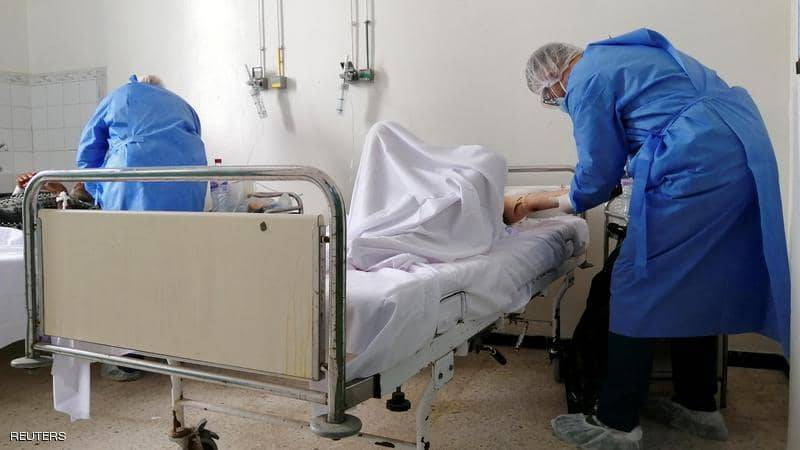Tunisia welcomed Eid al-Adha amid a highly precarious health situation due to an unprecedented spread of COVID-19 infections in the country, with positive test results reaching 30% of the total daily tests. The new wave of the pandemic in Tunisia is characterized by a wide spread of the British "Alpha" and Indian "Delta" variants across most provinces, causing an increase in the death rate that has exceeded 100 daily. Experts predict that deaths could reach 300 daily by the end of July.
In light of these circumstances, Prime Minister Hichem Mechichi dismissed Minister of Health Faouzi Mahdi, accusing him of making "populist and criminal" decisions. This came after vaccination centers in Tunisia, which opened on Eid al-Adha for those over 18, witnessed a gathering of thousands of citizens, resulting in chaos and skirmishes, particularly due to the absence of organization.
Tunisia's vaccination campaign is suffering from extreme slowness, exacerbating the pandemic crisis in the country. The World Health Organization states that Tunisia's daily death toll is the highest in Africa and among Arab countries. According to immunology professor Dr. Samar Samoud, holidays have raised concerns about further virus spread due to increased movement between cities.
The specialist explained that "COVID-19 exists through mutations, where infection rates rise, then decrease, and then rise again. If necessary preventive measures are not taken, the virus will spread from one province to another, as is currently happening in Tunisia." She warned that the recorded numbers in southern Tunisia in recent days, confirming that infections have exceeded 1,700 per 100,000 residents, have not been seen even in India, which has faced a catastrophic situation due to the pandemic.
Dr. Samoud noted that "Tunisia has reached the maximum capacity of all hospitals," and that "citizens must protect themselves and work to reduce the spread of infection by adhering to preventive measures, so that Tunisia can manage the pandemic before schools reopen next fall."
More than a week ago, the Tunisian Ministry of Health announced the collapse of its health system, and the Presidency issued pleas for help to the international community, prompting assistance from Arab and European countries in the form of vaccine doses and medical supplies. Hospitals in Tunisia are still suffering from oxygen shortages, and citizens are appealing on social media for respiratory devices, while the government states it is working to ensure oxygen supply for hospitals in the short and medium term by increasing domestic production as well as importing additional quantities from friendly countries.
On another note, epidemiologist Dr. Mohamed Chahed warned that Tunisia's oxygen consumption rate has quadrupled in recent weeks due to an intense surge in infections that has exceeded the capacities of the stressed and impoverished healthcare system. Chahed predicted that the current wave of the virus could last between 8 and 11 weeks before subsiding, provided that preventive protocols are observed.
He cautioned about the "continued transmission of infections from one city to another through people's movements," noting that even the harvest season in various regions has facilitated its spread among the provinces of Kasserine, Kef, Beja, Siliana, and Kairouan at significant rates, after being largely safe from the pandemic for many months. The specialist emphasized that the city of Tataouine in the south recorded an average of 1,720 infections of the virus per 100,000 residents over 14 days, which is four times higher than the severe risk threshold established by experts at 400 infections per 100,000.




